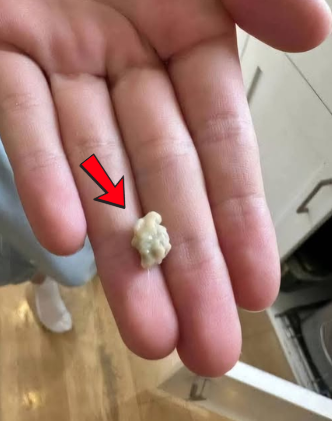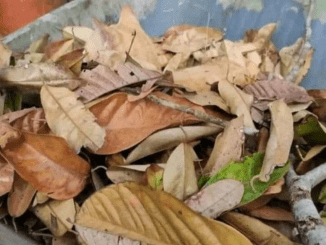
Ever had a strange tickle at the back of your throat or noticed tiny white specks when you coughed? Chances are, you’ve come across tonsil stones. They may look alarming and cause embarrassing bad breath, but the truth is—they’re more common than you think. While they’re usually harmless, understanding what they are, why they form, and how to prevent them can make your life a lot more comfortable.
What Are Tonsil Stones?
Tonsil stones, also known as tonsilloliths, are small, whitish-yellow lumps that form in the crevices of your tonsils. These stones develop when food particles, dead cells, and bacteria get trapped in your tonsil crypts and harden over time. Think of them as little “calcified plugs” in your tonsils.
While children and young adults tend to experience them more often, tonsil stones can happen at any age. They’re not life-threatening, but they can definitely make you self-conscious—especially since they’re a major cause of chronic bad breath.
Common Symptoms of Tonsil Stones
Sometimes tonsil stones are so tiny you won’t even know they’re there. Other times, they announce themselves loudly. Here are the most frequent symptoms:
- Persistent bad breath (halitosis)
- Sore throat or a scratchy sensation
- Difficulty swallowing or feeling something stuck in your throat
- Metallic taste in the mouth
- Swollen tonsils or redness
- Ear pain or pressure without an actual ear infection
- Frequent coughing spells
If any of these symptoms sound familiar, a quick look in the mirror—or a visit to your doctor—might confirm whether tonsil stones are the culprit.
How Tonsil Stones Are Diagnosed
Diagnosis is usually straightforward. A healthcare provider can often spot them with a simple physical exam. In rare cases, imaging tests like CT scans or ultrasounds are used to rule out other conditions. If you’re dealing with constant sore throats or infections, your doctor may also run additional tests to check for tonsillitis or other issues.
Video : Tonsil Stones | Tonsil Stones Treatment | Tonsil Stone Removal – All You Need to Know
Treatment Options for Tonsil Stones
The good news? Tonsil stones don’t always need medical treatment. If they’re not bothering you, you can often leave them alone. But if they cause discomfort or bad breath, here are some treatment paths:
- At-home removal: Some people gently push them out with a cotton swab or dislodge them by gargling with salt water.
- Medicated gargles: Antimicrobial rinses help reduce bacteria and slow down stone formation.
- Oral irrigators: Water flossers can flush out debris from tonsil crevices.
- Surgical options: In severe cases with recurring infections, a tonsillectomy (removal of tonsils) may be recommended.
Effective Home Remedies to Try
If you prefer natural approaches before heading to the doctor, these home remedies can help:
- Saltwater gargles: Mix a teaspoon of salt in warm water and gargle several times a day to soothe the throat and loosen stones.
- Apple cider vinegar: Diluted vinegar gargles may help balance pH and reduce bacterial growth.
- Hydration: Drinking plenty of water prevents dry mouth, which can worsen stone formation.
- Good oral hygiene: Regular brushing, flossing, and tongue cleaning reduce the buildup of bacteria and debris.
Keep in mind that these methods may provide temporary relief. If stones keep coming back, it’s best to get professional advice.
Preventing Tonsil Stones Before They Form
While it’s nearly impossible to prevent every single stone, there are steps you can take to minimize them:
- Brush and floss daily, including cleaning your tongue
- Stay hydrated to avoid dry mouth
- Limit alcohol and avoid tobacco, both of which irritate your tonsils
- Use alcohol-free mouthwash to reduce bacteria
- Visit your dentist regularly for cleanings and checkups
These habits don’t just help prevent tonsil stones—they also improve your overall oral health.
When to See a Doctor
Most tonsil stones are harmless, but you should see a doctor if you notice:
- Persistent bad breath despite good hygiene
- Painful or frequent sore throats
- Stones that keep coming back
- Large stones that won’t dislodge on their own
In some cases, recurring tonsil stones can point to chronic tonsillitis, which might require surgical removal.
Video : ASK DR. H – What You Need to Know About Tonsil Stones
Conclusion
Tonsil stones may be small, but they can cause big discomfort. From annoying bad breath to a constant tickle in your throat, they’re unpleasant but manageable. The key is knowing what they are, how to remove them safely, and how to keep them from forming in the first place. With good oral hygiene, hydration, and the right preventive steps, you can reduce your risk of tonsil stones and keep your throat feeling fresh and healthy. If they keep coming back or cause ongoing discomfort, don’t hesitate to talk with your doctor—sometimes, a more permanent solution is the best way forward.


